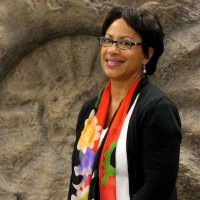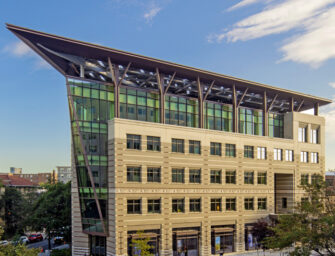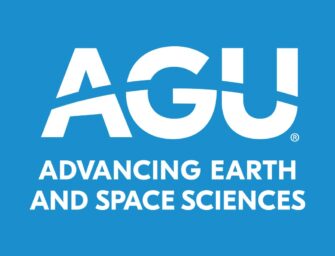Each One Teach One: A Geoscience Call to Action During Black History Month
 African American history and traditions are interwoven with themes of resilience, interconnectedness across generations, strength from spiritualty, and learning from direct experiences. As we celebrate Black History Month in February, I welcomed the opportunity reflect on my own personal and professional experiences, as well as those of other African American professionals, that might serve as an inspiration to others. While ongoing efforts to increase the numbers of African American, Native American, and Latino/a geoscientists often falls short of goals, we shouldn’t lose sight of the value these communities bring to Earth science.
African American history and traditions are interwoven with themes of resilience, interconnectedness across generations, strength from spiritualty, and learning from direct experiences. As we celebrate Black History Month in February, I welcomed the opportunity reflect on my own personal and professional experiences, as well as those of other African American professionals, that might serve as an inspiration to others. While ongoing efforts to increase the numbers of African American, Native American, and Latino/a geoscientists often falls short of goals, we shouldn’t lose sight of the value these communities bring to Earth science.
Many geoscientists eagerly promote our discipline but effectively reaching outside of our professional network can be a challenge because underrepresented students often discover geoscience through a chance encounter. Coursework, summer field programs, and natural history museum visits can, of course, convey the excitement of geoscience, but these should be coupled with more creative strategies to help tap the inner geoscientist residing in an individual who does not have an opportunity to take a course or participate in a field program.
As a female African American geoscientist, my introduction to the geosciences was somewhat accidental. Inspired as a youth by mineral, rock, and fossil collections on display at the California Academy of Science near my house in San Francisco, I began wondering how the Earth worked. Many years later, I took a general education course in geology while an undergraduate student at San Francisco State University. This broad curiosity was heightened by the eruption of Mt. St. Helens which had occurred the year before I took my first geology class. As a Californian, I had felt my share of earthquakes, but the Earth’s power and dynamic nature was on full display in nearby Washington State, further enhancing my interest in Earth science.
I benefitted from good mentoring and a geology instructor who recognized my potential and encouraged me to apply for an internship program at the US Geological Survey in Menlo Park, CA. Over three summers, working with a cohort of diverse students recruited from a variety of universities in the San Francisco Bay Area, I worked alongside USGS scientists in Alaskan terranes, geological mapping along dam sites in New Mexico, and preparation of micro- and macrofossil samples from key stratigraphic units in California. On reflection, that program at the USGS – Minority Participation in the Earth Sciences – had many of the essential elements we now expect of successful diversity programs: exposure to and immersion in authentic field and lab-based research, guidance by mentors, positive and inclusive peer-to-peer interactions, and robust academic support.
Those undergraduate years also inspired me to give back by visiting public schools and community centers where I share my experiences and excitement about geosciences with diverse audiences. I joined the National Association of Black Geoscientists (NABG) while I was in graduate school at the University of California, Santa Cruz, and this further enhanced my appreciation for the generosity of those in this profession. The NABG conferences were vibrant and supportive environments that engendered career building and a sense of community across a network of professionals that were firmly committed to nurturing others.
As a faculty member at San Francisco State University, I was the principal investigator of the NSF-funded SF-ROCKS program focused on engaging diverse high school students in geoscience learning experiences. Now, as education director at the University of California Museum of Paleontology in Berkeley, my career has come full circle as I’ve re-tapped the excitement I felt about museums in my youth that helped inspire my geoscience career.. My job now focuses on promoting opportunities for others to learn virtually or locally from museum collections.
Reflecting on my own career and the importance of nurturing the careers of young scientists, I think of my late father, Joseph L. White, Professor Emeritus of Psychology and Psychiatry at the University of California, Irvine. A social activist affectionately remembered as the Father of Black Psychology) his research and teachings moved the field of psychology beyond the deficit models used to describe black individuals to one that embraces and promotes the positive attributes of the black community. He frequently highlighted our ability to overcome tragedy, be resilient, and “keep on keeping on.” A foundation of my father’s teaching approach was rooted in mentoring, “Each one – teach one” was a favorite saying.
As we geoscientists explore the role of mentors and the vital relationships needed to foster and sustain a more inclusive environment in our professional community, we should welcome opportunities to give back, pay it forward, and share our personal experiences in hopes that others draw inspiration from our unique geoscientific journeys.



There are no comments
Add yours